
Corporate leaders seeking to fund K-12 STEM programs face a common challenge. How can you ensure your investment delivers measurable, high-quality educational outcomes without excessive administrative overhead?
The answer lies in partnering with a fully vertically integrated community impact partner. This model controls the entire process, from curriculum design to kit delivery, ensuring consistency, quality, and cost efficiency.
For companies focused on workforce development and community engagement, this approach transforms scattered efforts into a strategic, scalable program.
See the blueprint for a high-impact partnership
Vertical integration in the context of community partnerships means one organization manages the entire supply chain of an educational program. This includes curriculum design, material sourcing, kit assembly, instructor training, program delivery, and impact measurement.
For STEM education, a vertically integrated partner does not rely on a network of third-party vendors. Instead, it builds and controls the key components. This creates a seamless experience for schools and a reliable, auditable program for funders.
Betabox, for example, designs its own hands-on projects, sources materials, assembles kits in-house, and provides both the mobile labs (Onsite Field Trips) and the digital platform (Classbox.com) for continued learning. This end-to-end control is the foundation of its community impact partnerships.
Choosing a partner that manages the entire process offers distinct advantages for corporate funders.
When a single partner controls the entire process, the quality of every student experience is consistent. Every STEM kit is assembled to the same standard, and every lesson is delivered with the same pedagogical approach. This eliminates the variability that can undermine program results and reporting.
Supply chain control in STEM kits is critical for reliability. An integrated partner is not subject to the delays or quality issues of external suppliers. This ensures that programs launch on schedule and that materials are safe, durable, and effective. For corporate partners, this means your sponsored programs run smoothly, protecting your investment and brand reputation.
An integrated partner offers a single point of contact and a unified data system. This simplifies logistics for you and provides consolidated reporting on key metrics across all program locations. You receive clear, comprehensive impact reports instead of disjointed data from multiple vendors.
The ultimate test of a partnership is its effect in the classroom. Vertically integrated models are uniquely positioned to deliver superior educational results.
Betabox creates a continuous learning pathway. A student might first encounter robotics during an Onsite Field Trip (a mobile lab visit), then deepen their understanding with a Hands-On Project kit in the classroom, and finally explore career paths using digital tools. This integrated experience, managed by one partner, sustains student engagement and builds deeper understanding.
Teachers receive coordinated support, from professional development workshops to the Classbox.com platform, which supplies lessons and materials. This unified support system builds educator confidence and ensures that hands-on learning is implemented effectively, leading to better student outcomes.
Vertical integration in education is not just about quality, it is also a powerful driver of financial efficiency.
By designing, sourcing, and assembling its own STEM kits, an integrated partner removes the markups of multiple distributors. This means more of your funding goes directly to student experiences, not to third-party overhead.
Your team manages one relationship and one contract, instead of coordinating with curriculum designers, kit suppliers, and program facilitators separately. This significantly reduces the internal administrative cost of your community investment.
Betabox has leveraged its integrated model to deliver measurable results through partnerships with leading organizations.
By controlling its entire supply chain, Betabox has efficiently scaled its reach to over 125 counties, serving more than 325,000 students. Many of these students are in rural and underserved communities, where access to quality STEM education is most limited. This scalability is a direct result of an integrated impact solution.
Collaborations with organizations like Google and foundations demonstrate the model's effectiveness. These partners leverage Betabox's turnkey system to deploy high-quality STEM programs without building the operational infrastructure themselves, focusing their resources on strategic goals and community engagement.
Selecting a partner is a strategic decision. Here is a practical guide.
See how a structured partnership works. Request a Demo of Betabox Blueprint.
A vertically integrated partner provides the strategic control and operational efficiency that corporate social responsibility leaders require. This model ensures your investment in the future workforce delivers the educational quality and auditable results your company demands.
Take the next step in building a strategic, high-ROI partnership. Book an Impact Partnership Consult to see the full blueprint.
What is a vertically integrated community impact partner?
It is an organization that controls all aspects of program delivery, from content creation and material sourcing to instruction and impact measurement, ensuring quality and efficiency.
How does vertical integration benefit education partnerships?
It guarantees consistency, reduces costs by eliminating middlemen, simplifies management, and provides unified data reporting for corporate partners.
What are the advantages of choosing a fully integrated partner for STEM?
Advantages include reliable program quality, direct supply chain control, streamlined implementation, and more cost-effective use of partnership funds.
How do integrated partnerships improve community outcomes?
They provide a cohesive, high-quality learning experience for students and comprehensive support for teachers, leading to greater STEM interest and skill development.
Why is supply chain control important for educational impact?
It ensures that learning materials are always available, high-quality, and aligned with the curriculum, preventing program disruptions that can hinder student learning.
What should we look for in a partner’s impact report?
Look for data on student participation, pre/post assessments of STEM knowledge and interest, teacher feedback, and geographic reach, all verifiable through the partner’s platform.


Ready to learn how Betabox resources can be implemented at your school or District?
Book a Blueprint Call



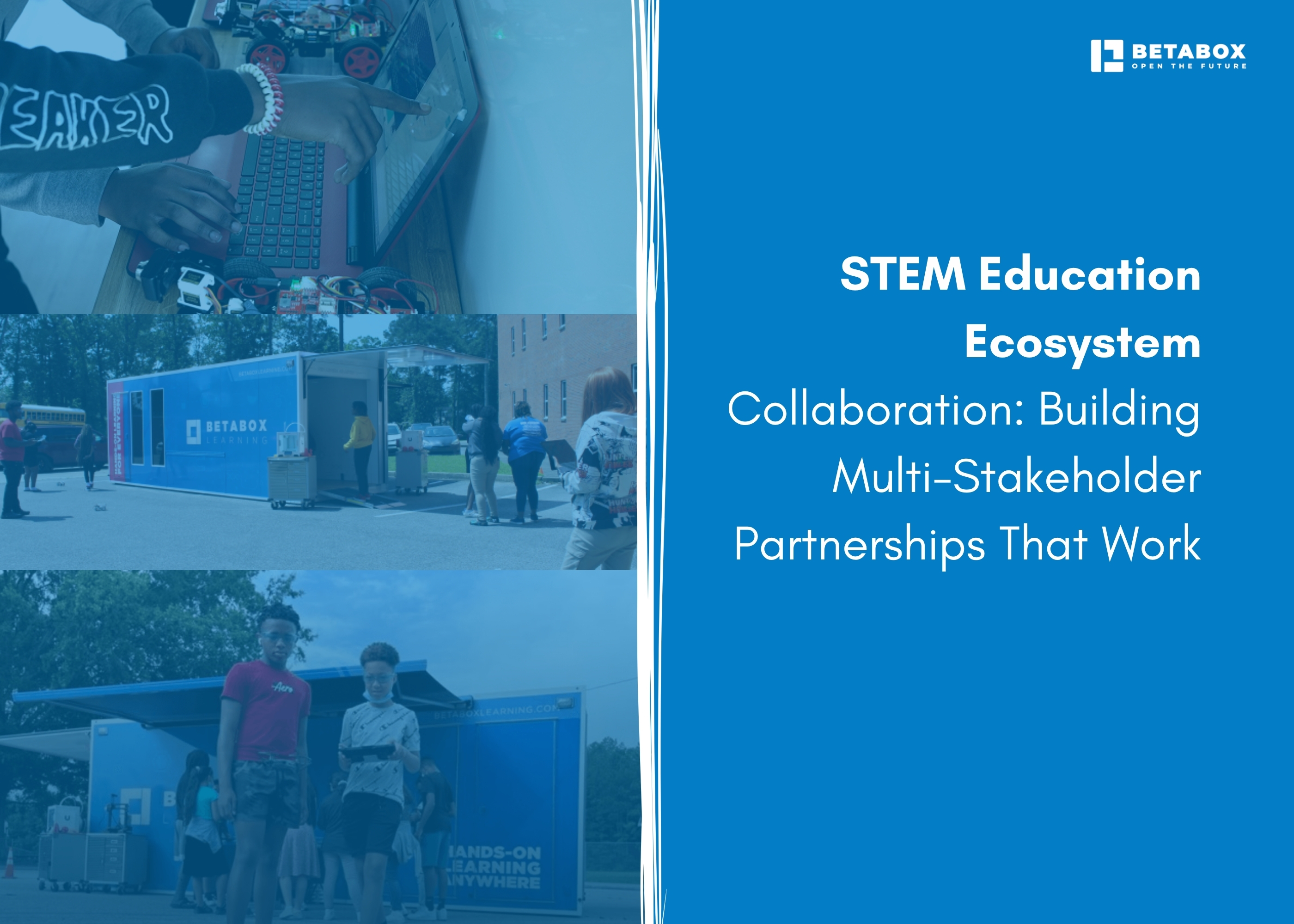

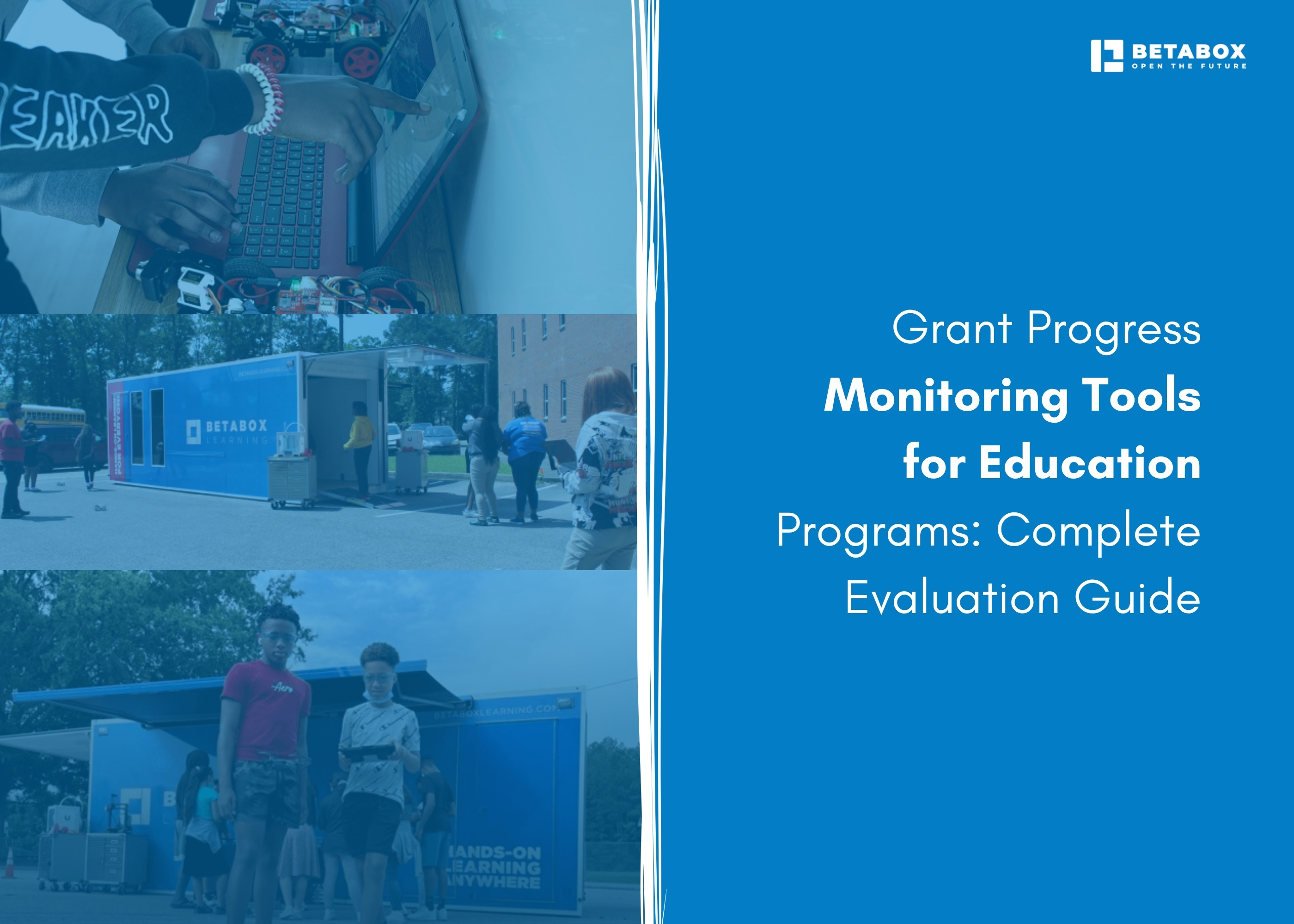

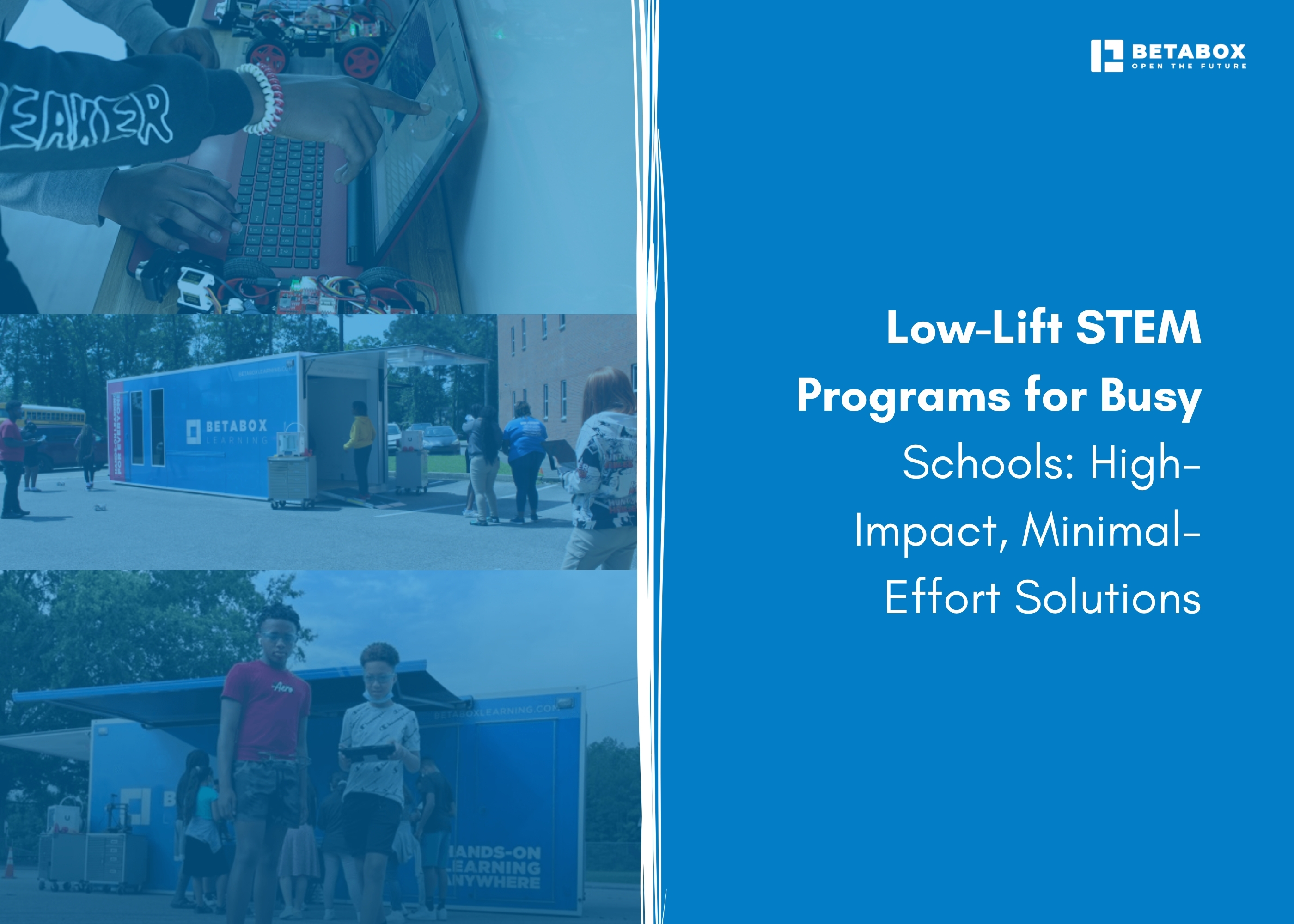

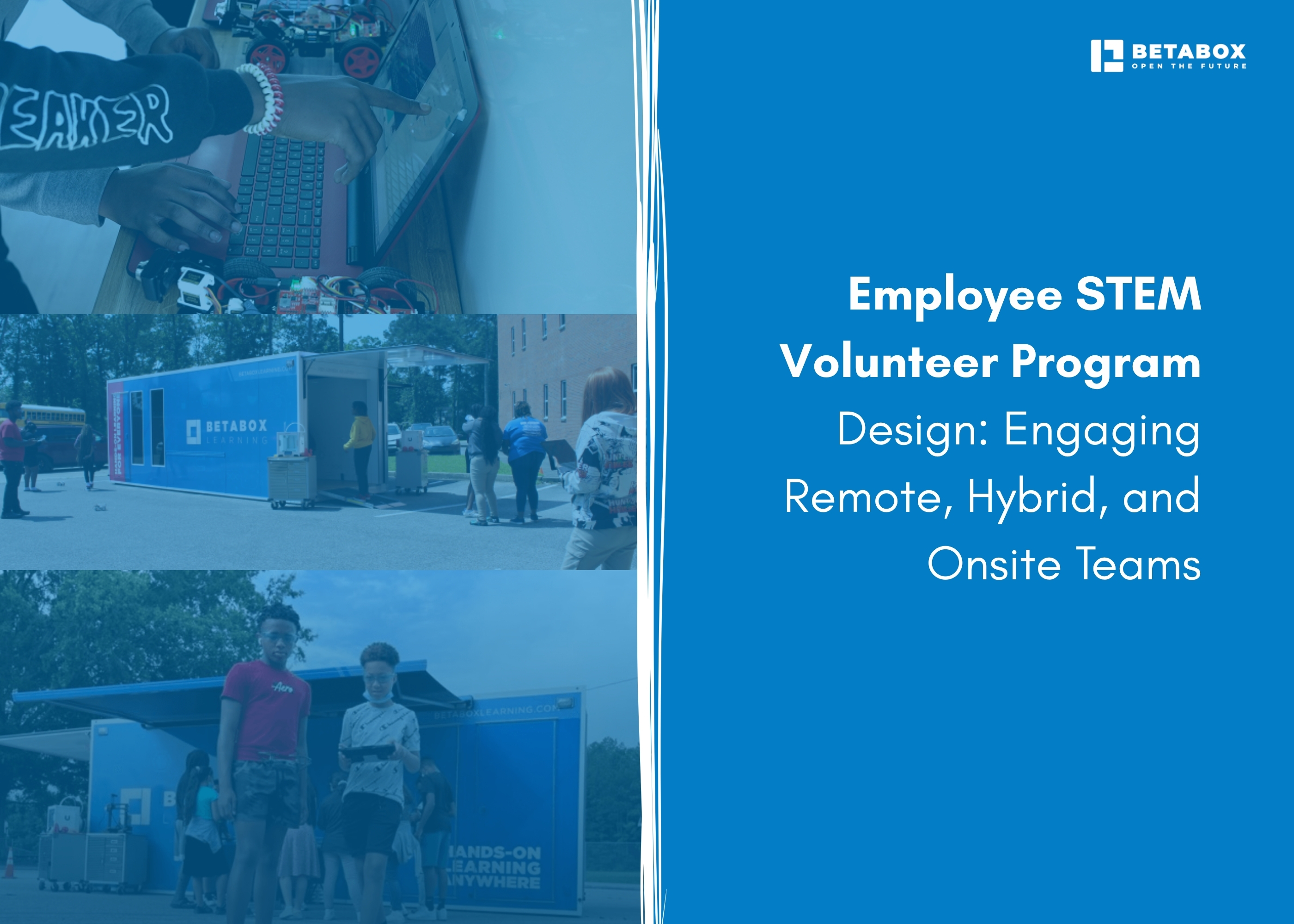



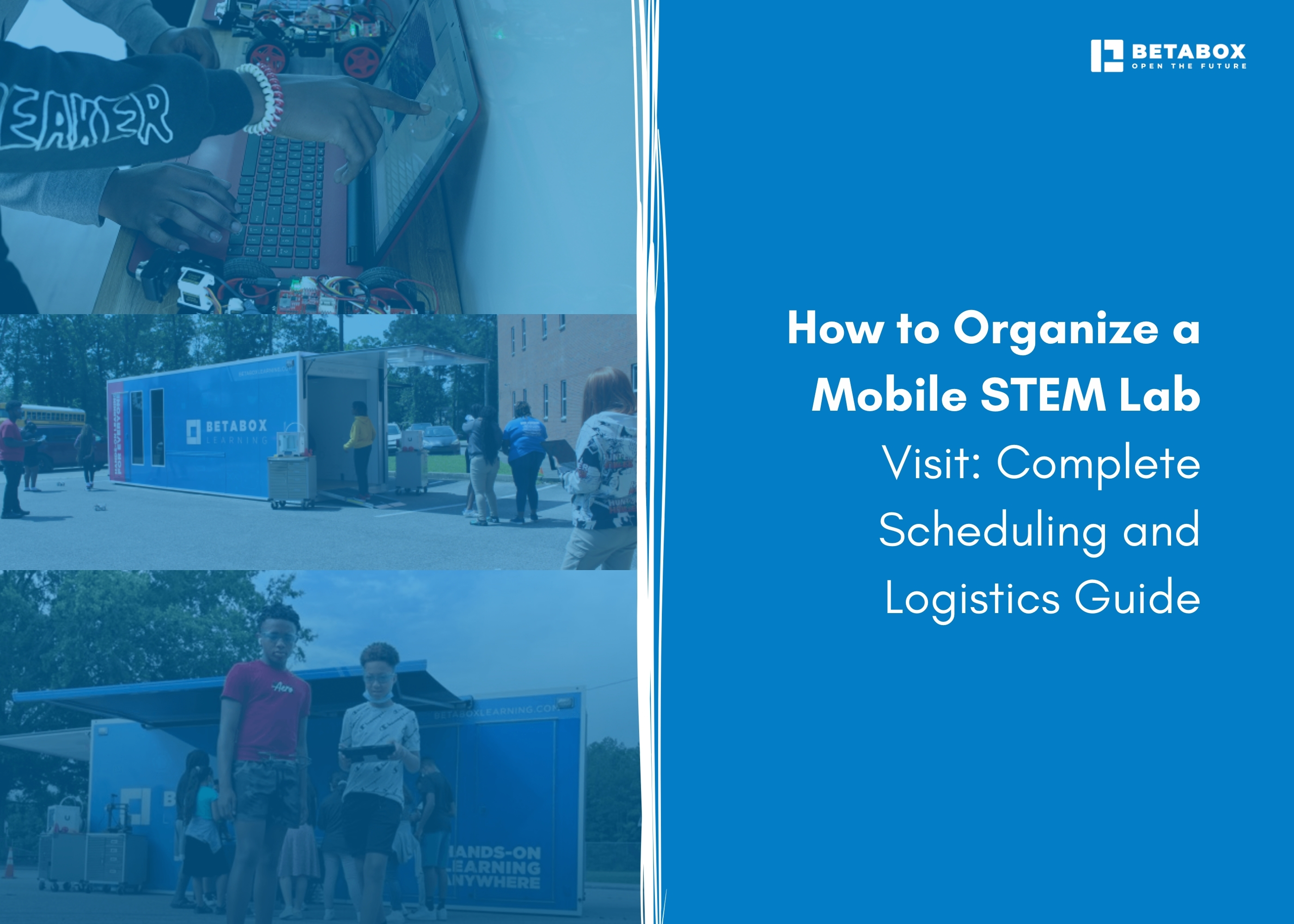



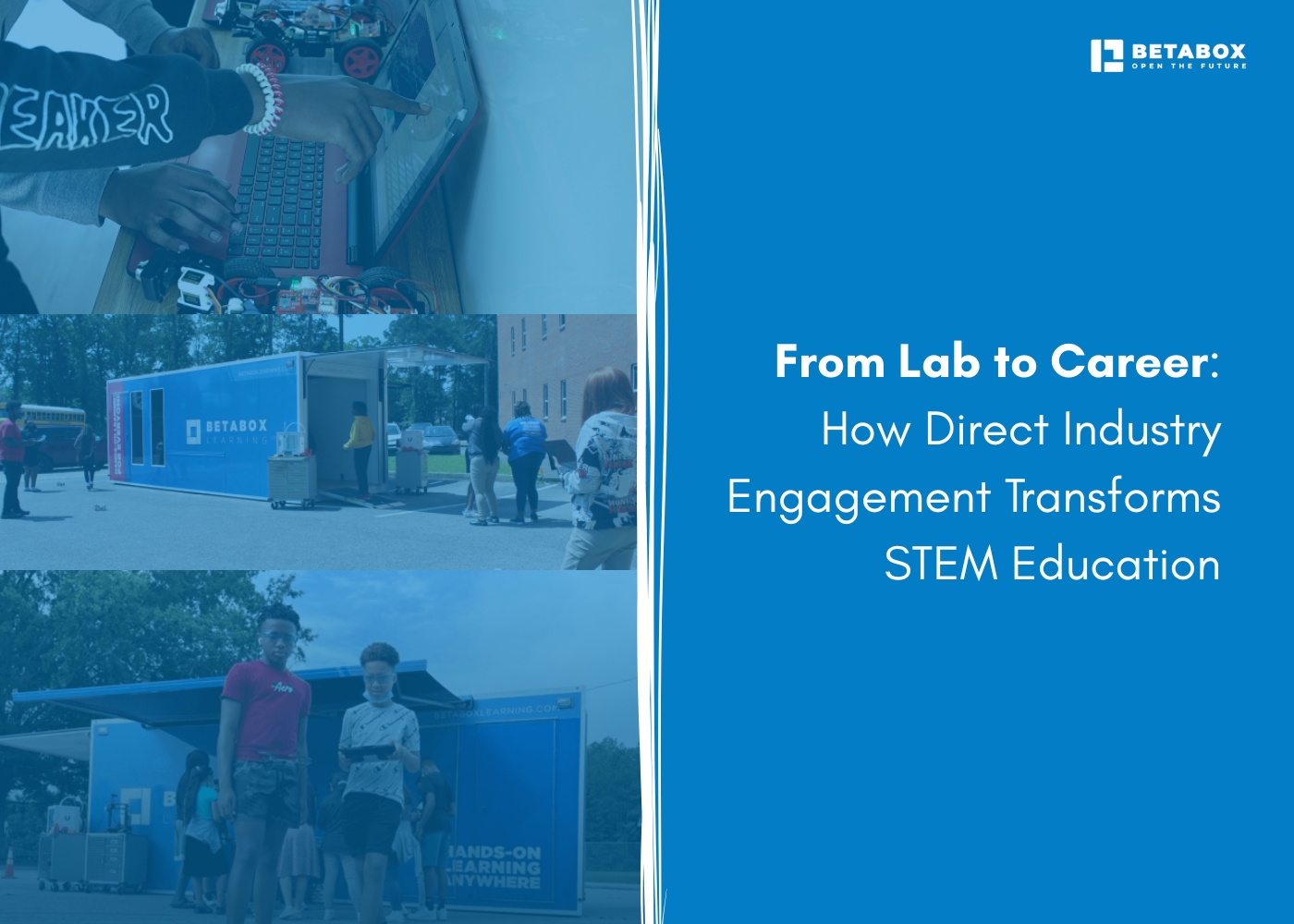

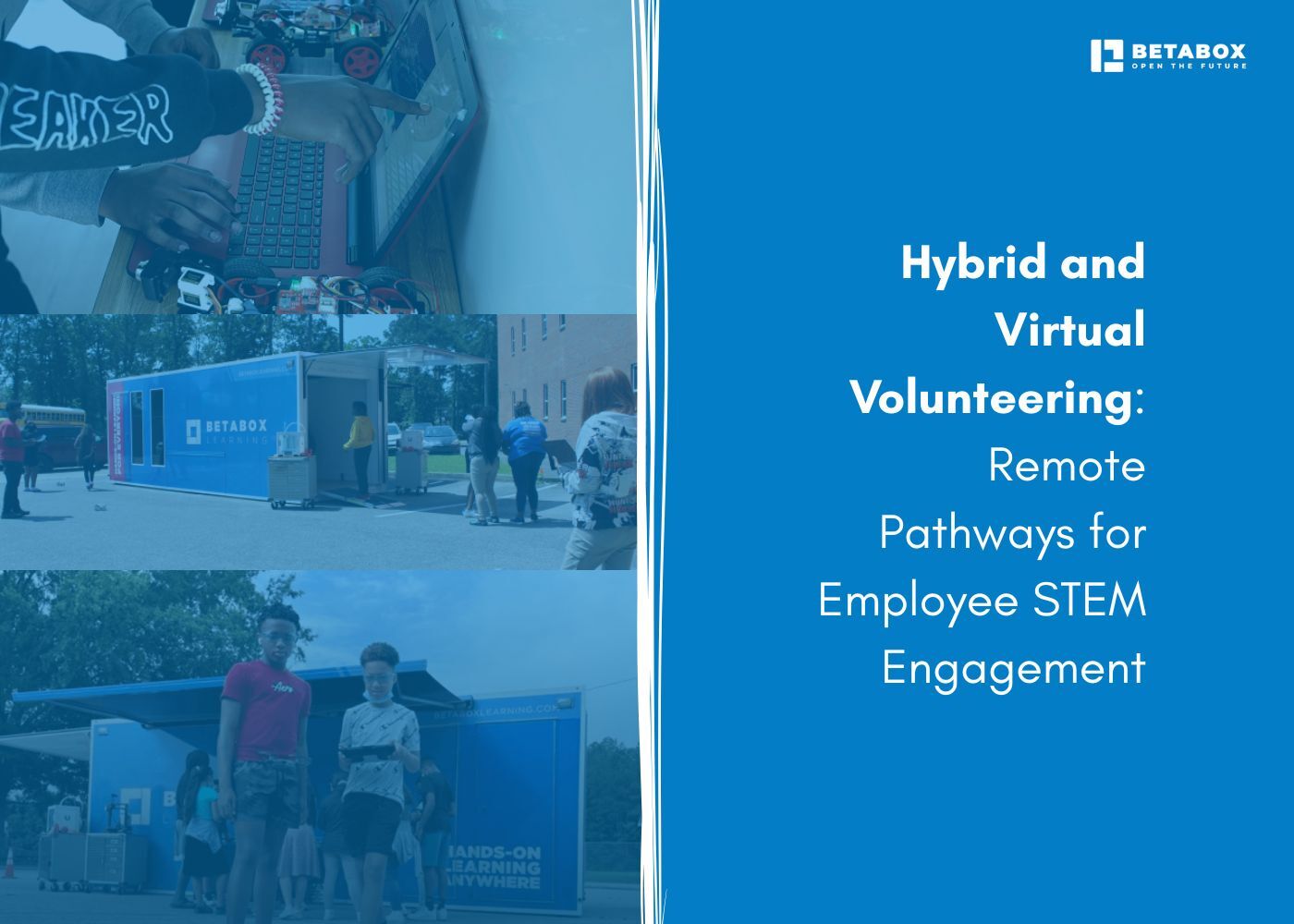

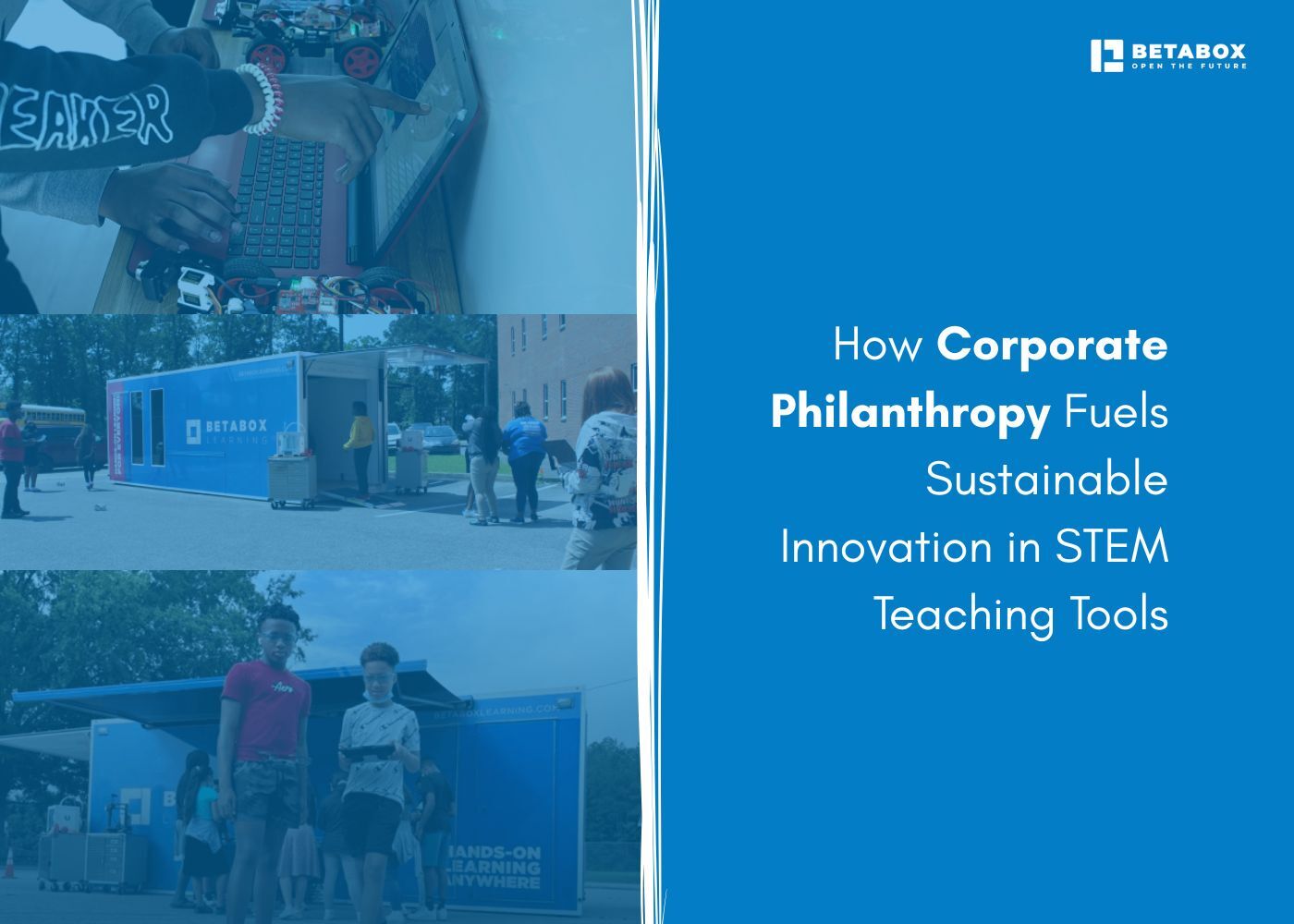

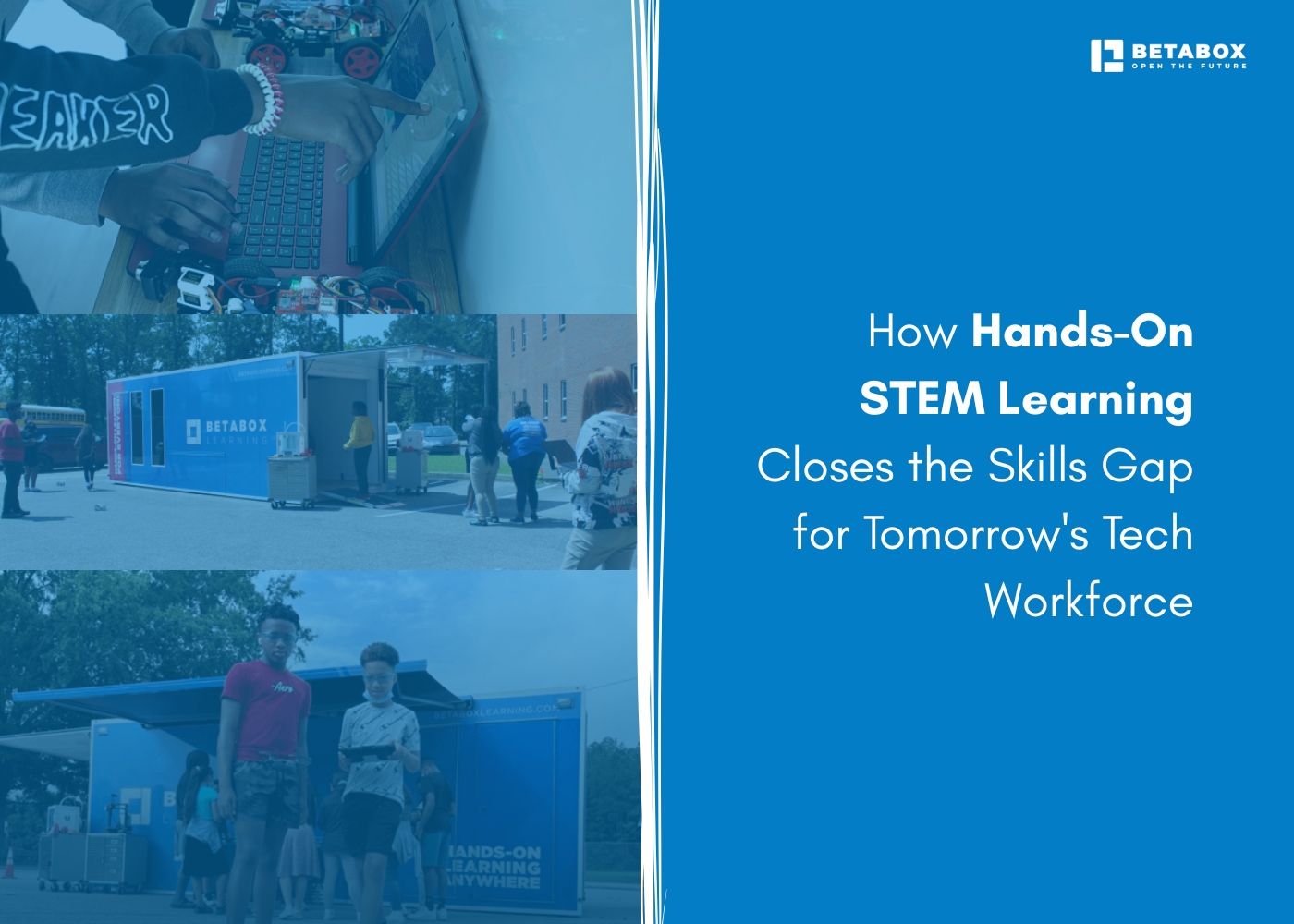

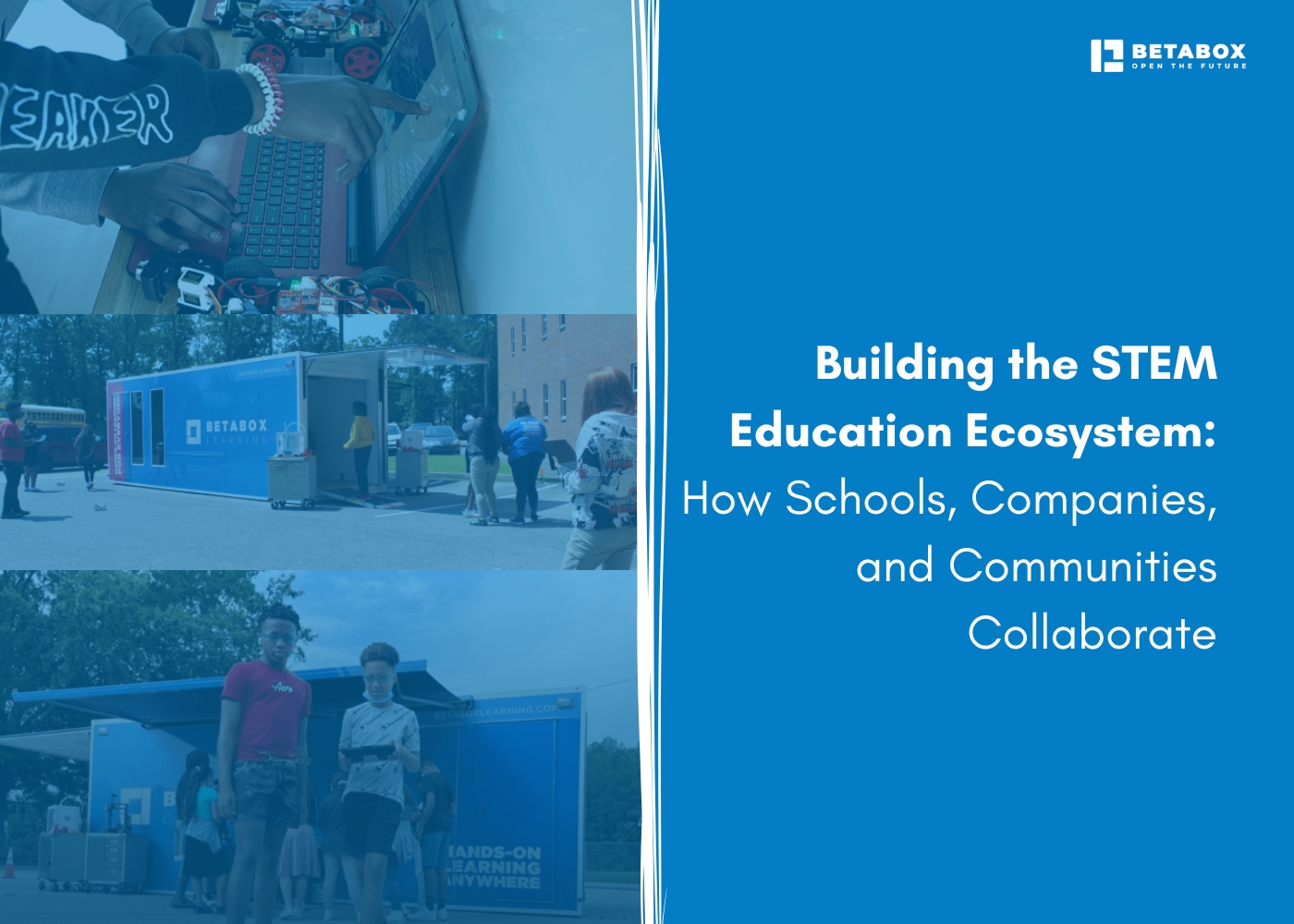

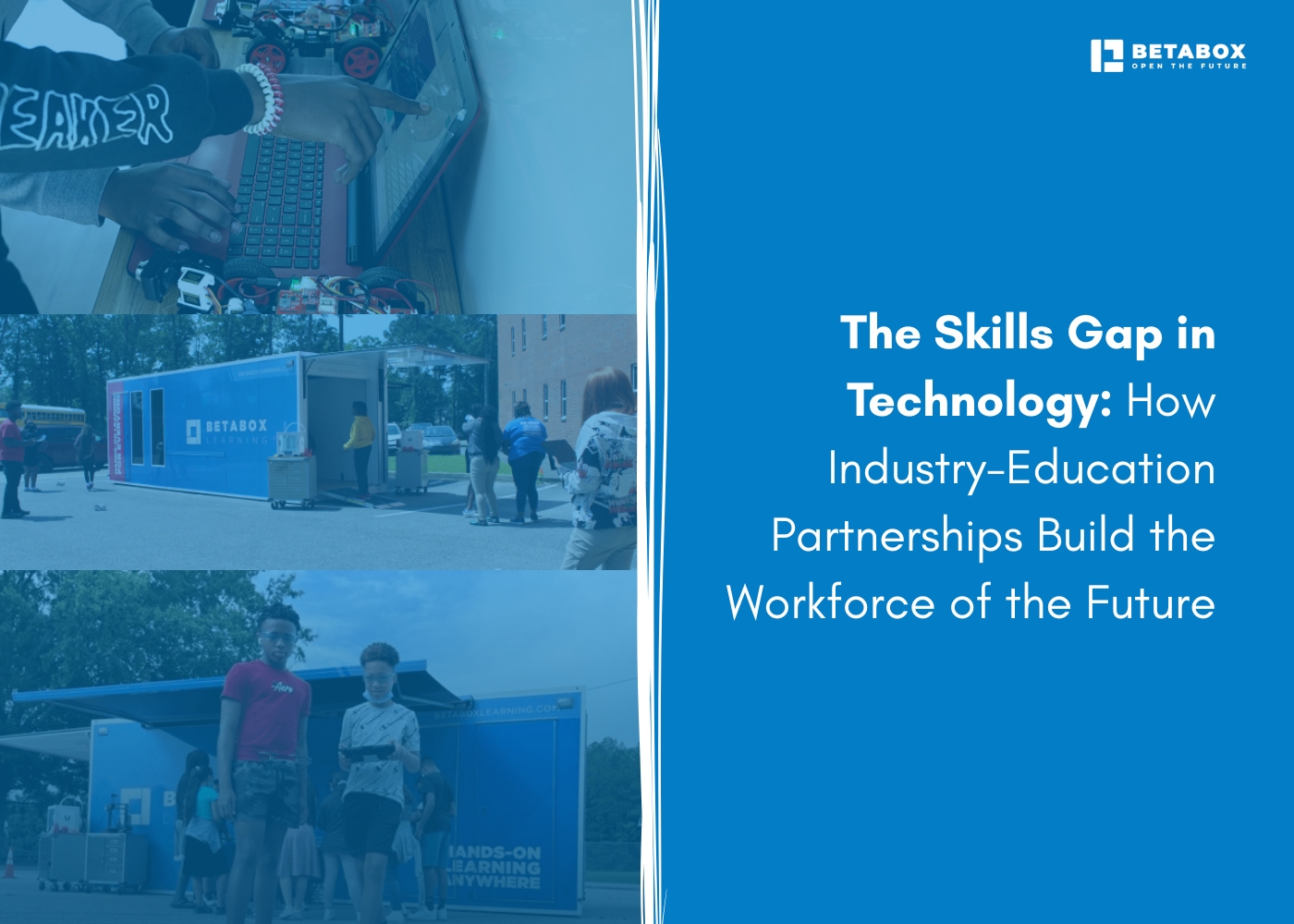

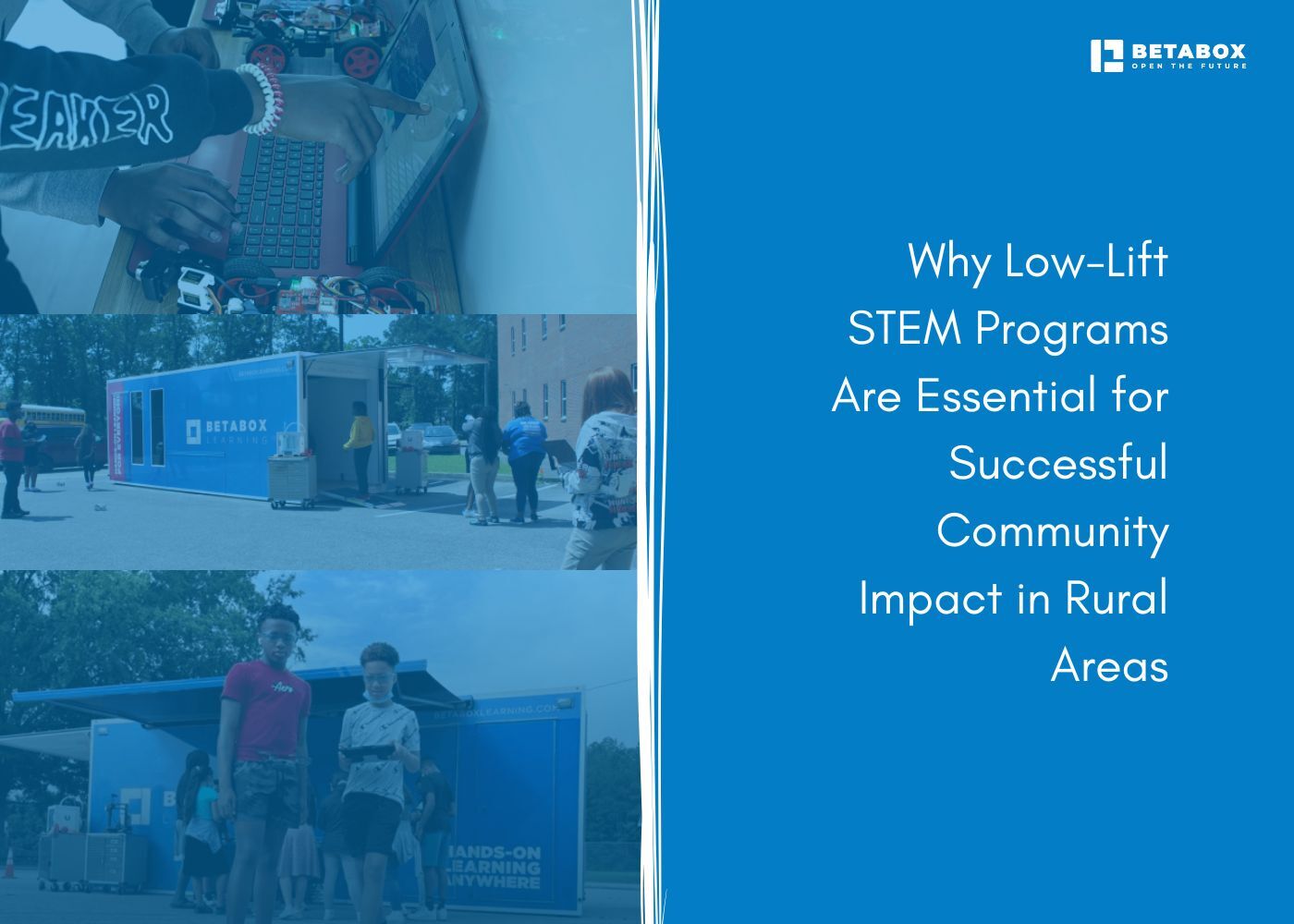

.jpg)

.jpg)

.jpg)

.jpg)

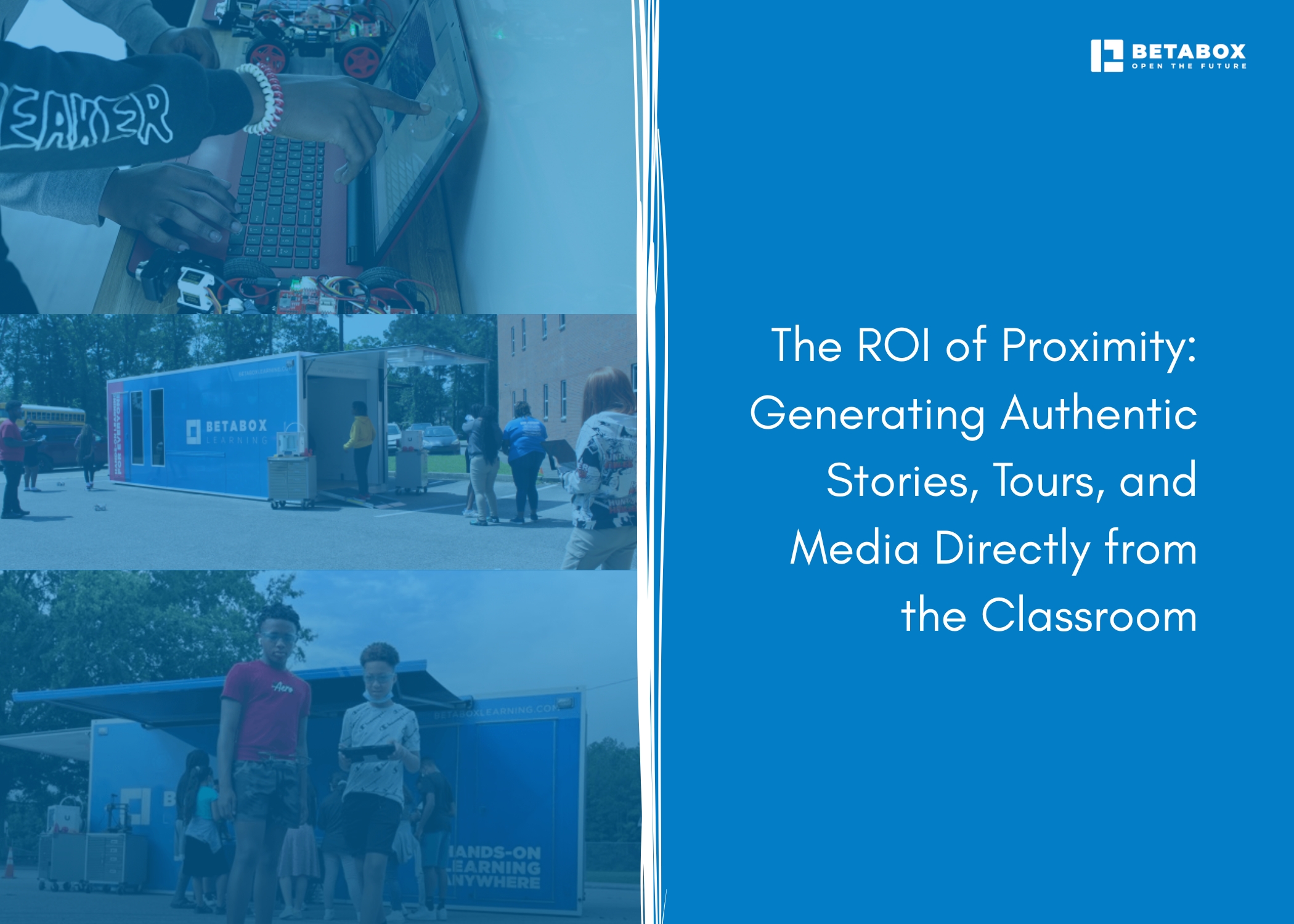

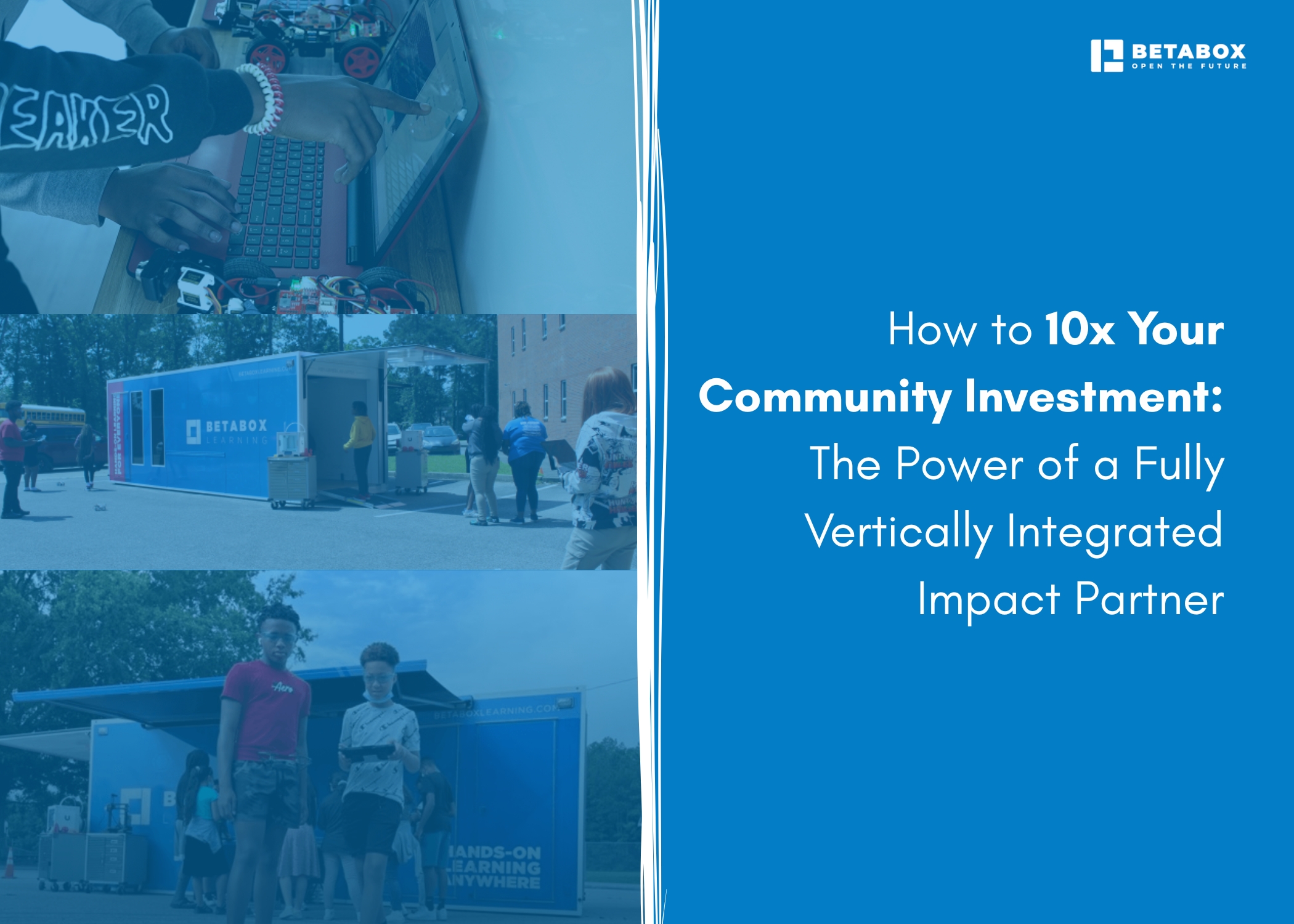

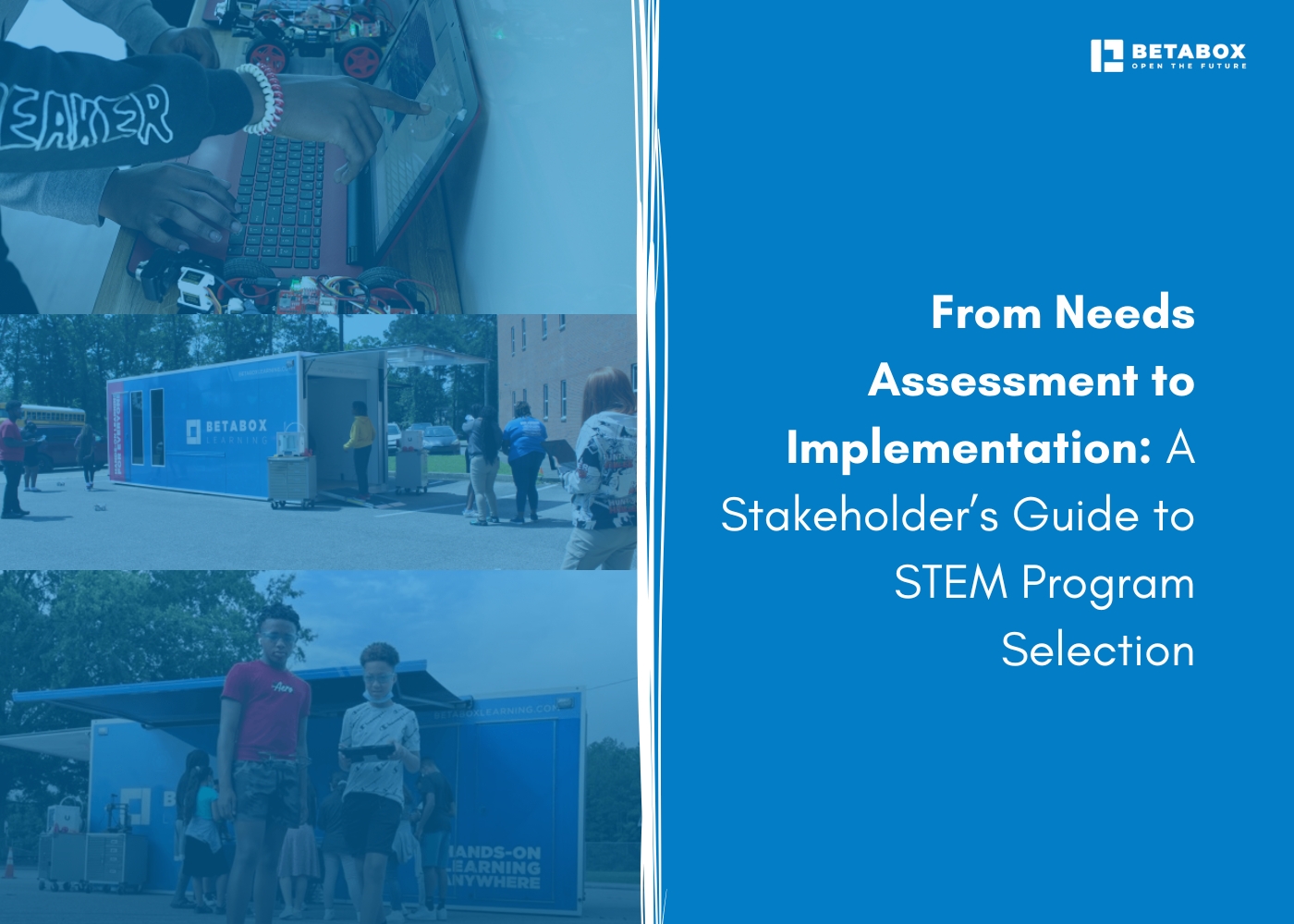

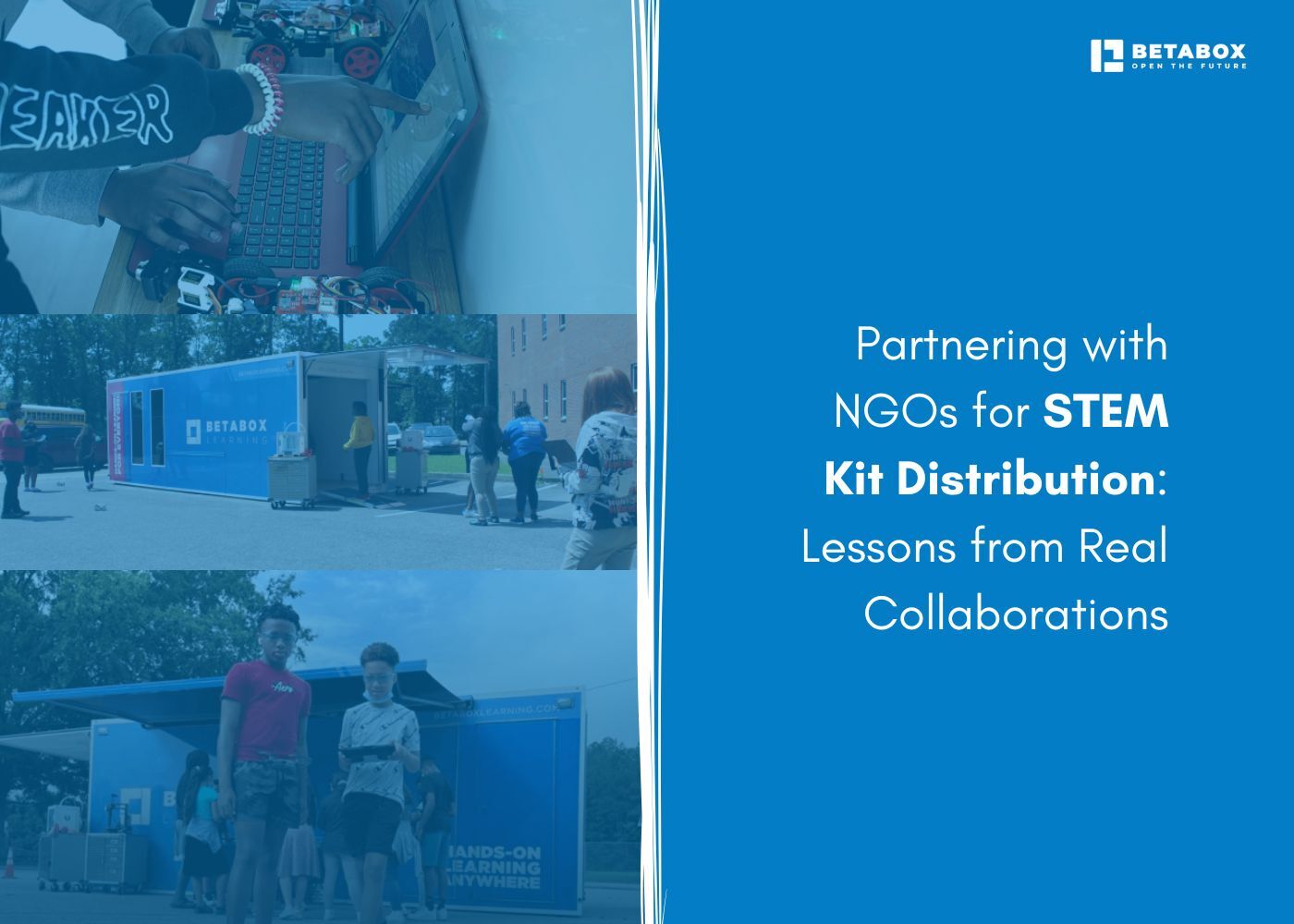

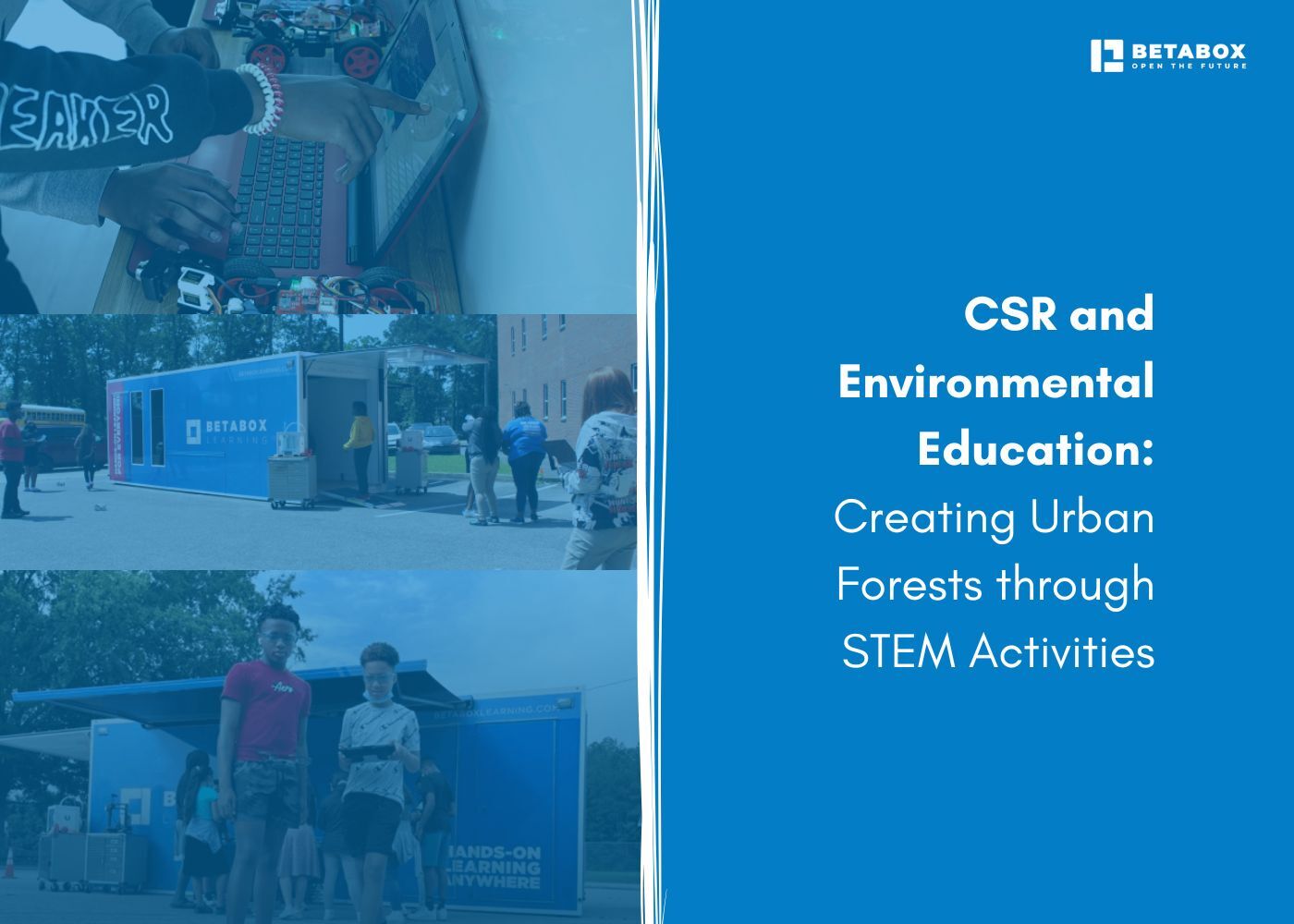

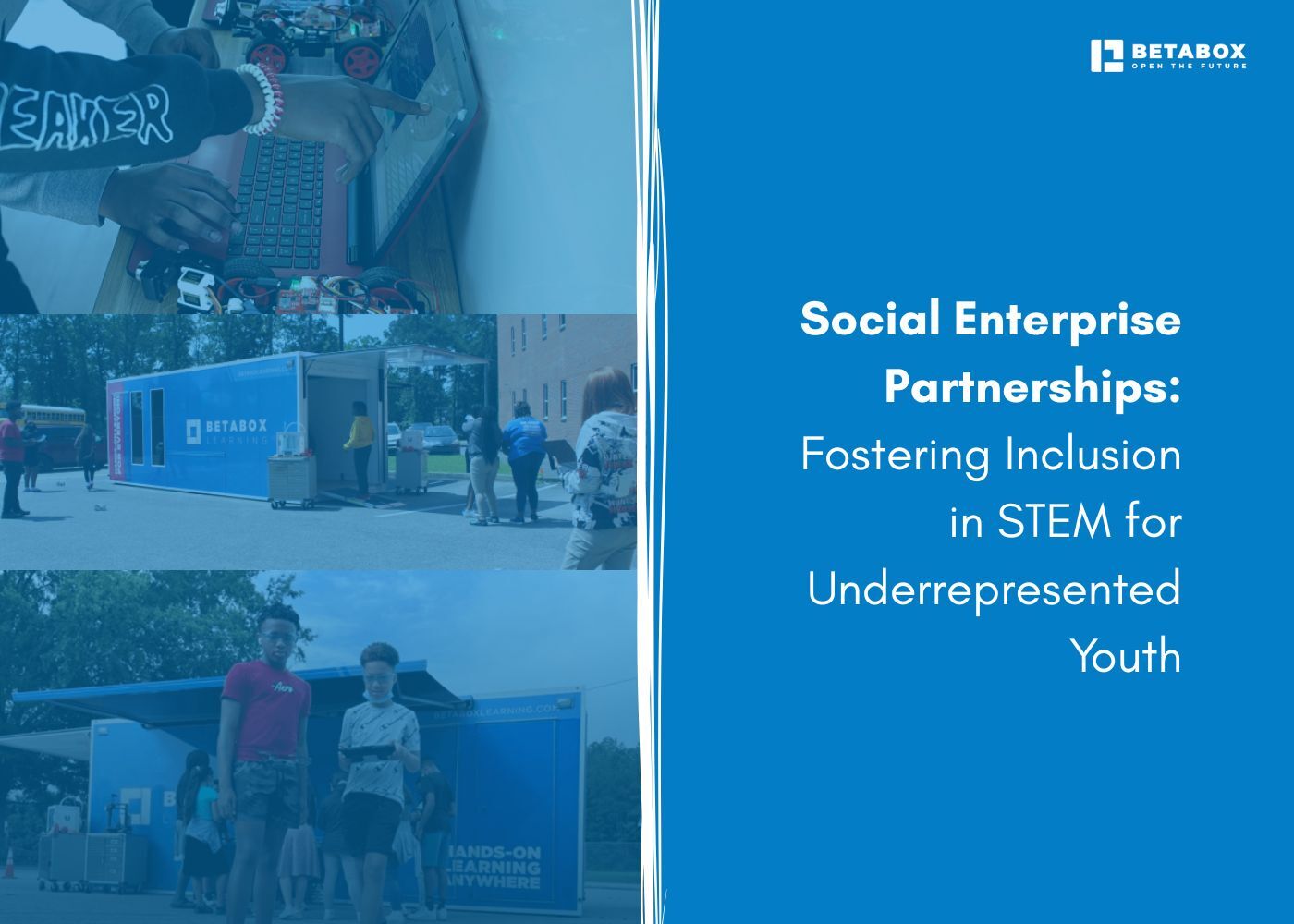

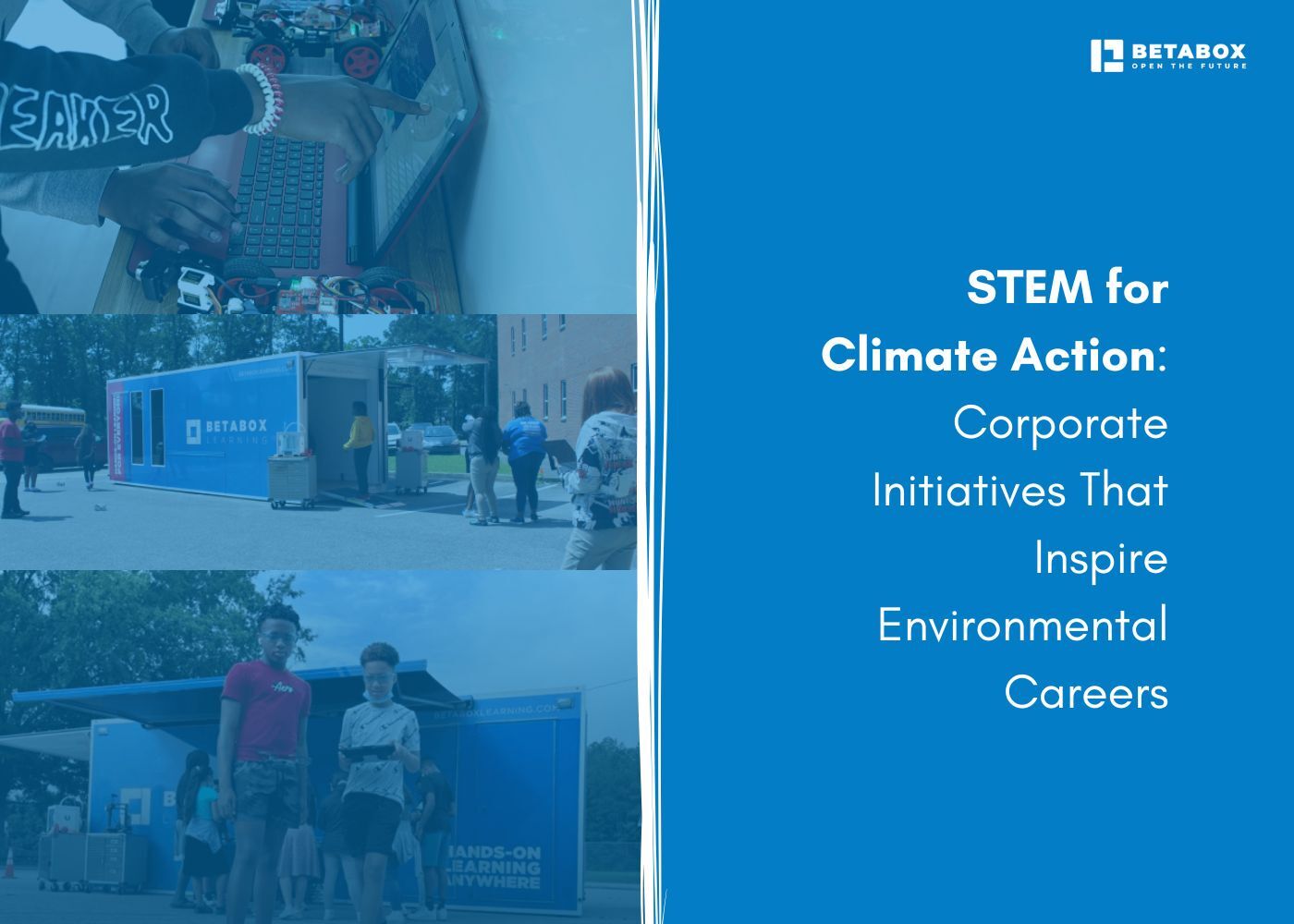



At Betabox Learning, we are passionate about making hands-on STEM curricula accessible to all students.

Join our newsletter to stay in the loop on all things Betabox and the future of STEM education.
By submitting your email address, you agree to our Privacy policy and Terms of Service. You can unsubscribe any time via the link in your email.
© 2025 Betabox. All Rights Reserved
